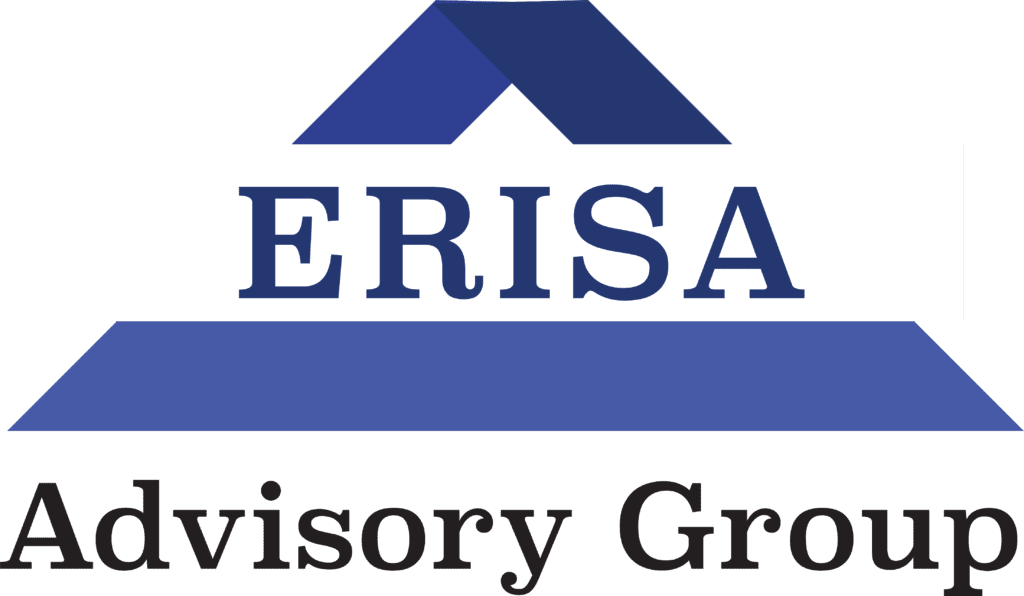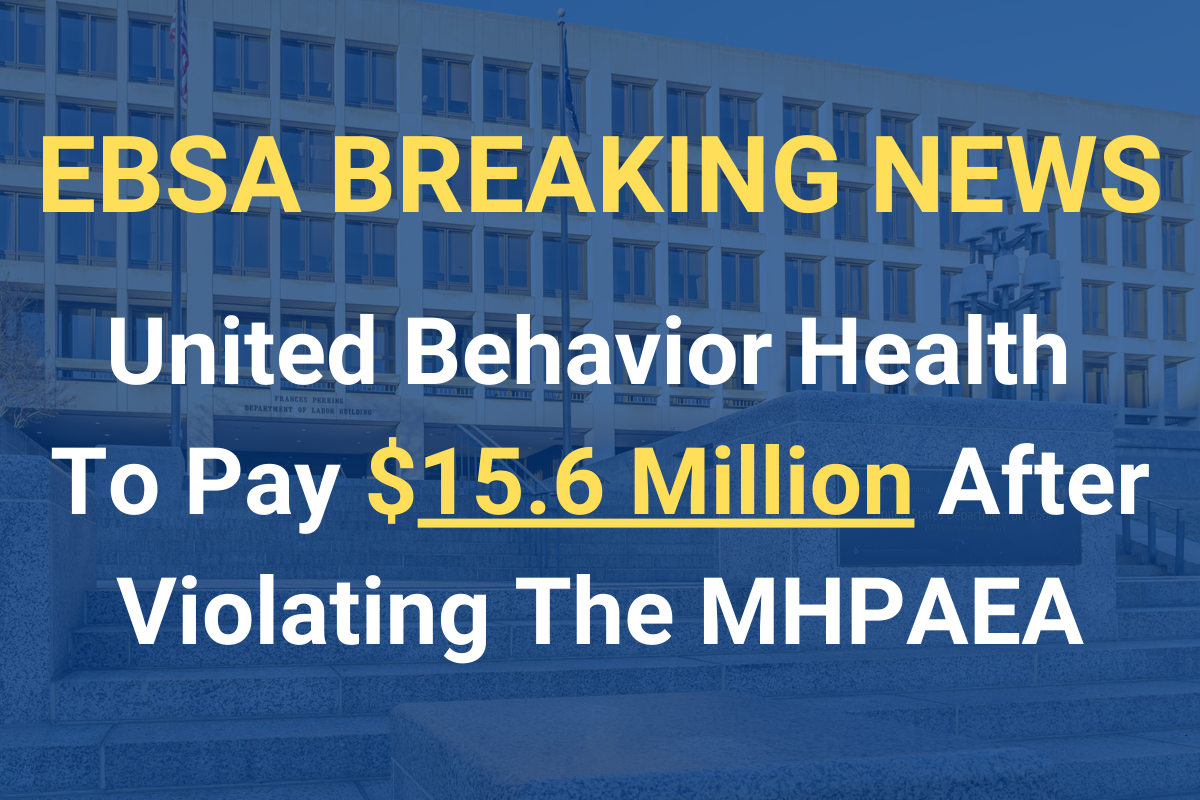ERISA Insider Vol II., Ed VIII: United Behavioral Health To Pay $15.6 Million After Investigations Find Violations Of The Mental Health Parity and Addiction Equity Act (MHPAEA)
Following federal and state investigations by the DOL and NY Attorney General, UBH is set to reimburse plan participants $13.6 million, pay $2 million in penalties and take further corrective action.
Dear Fiduciary,
Recently, The Employee Benefits Security Administration (EBSA) resolved violations of The Mental Health Parity and Addiction Equity Act of 2008 (MHPAEA). EBSA’s New York Regional Office conducted the investigation leading to a settlement of $15.6 million.
United Behavioral Health (UBH) & United Health Insurance were subject to corrective action including penalties after state and federal investigations found non compliance with Employee Retirement Income Security Act (ERISA) covered health plans.
UBH was found to violate the Mental Health Parity Initiative that is part of EBSA’s Health Enforcement Project.
The purpose of the Mental Health Parity and Addiction Equity Act is to ensure employer health plans comply with mental health and substance abuse disorder rules. The MHPAEA focuses on evaluating treatment limitations relating to opioid and substance abuse disorders.
EBSA’s investigation found that since at least 2013, UBH reduced reimbursement rates for out of network mental health services.
This caused participants in the health plan to be overcharged, and subsequently, many participants undergoing treatments were denied payment for those services.
In the case of UBH, they improperly imposed limitations on mental health benefits which are often more restrictive than limitations imposed on medical benefits. This is clearly a violation of ERISA which prevented plan participants and beneficiaries from receiving the benefits which they were entitled to.
Further investigation also found that UBH failed to disclose sufficient information relating to these practices to plans and their participants.
As an employer it is critical that your health and benefit plans stay in compliance with ERISA. Whether a violation is caused by negligence of a fiduciary or just a simple mistake, it can lead to significant penalties and corrective action — especially when a fiduciary fails to voluntarily correct mistakes.
UBH settled with the EBSA — agreeing to immediately cease violations, properly disclose information with plan participants and commit to compliance in the future.
Along with these corrective actions, UBH was also required to pay $13.6 million dollars to affected plan participants and an additional $2.1 million dollars in penalties.
“Protecting access to mental health and substance use disorder treatment is a priority for the Department of Labor and something I believe in strongly as a person in long-term recovery. This settlement provides compensation for many people who were denied full benefits and equitable treatment” said U.S. Secretary of Labor Marty Walsh.
In this situation, it’s a positive outcome for the EBSA and UBH as they were able to resolve the issues and take corrective action without significant legal action. In some cases, like with Advance Benefits Management Systems USA, EBSA took legal action by suing for $7,000,000 in unpaid claims and requested that involved fiduciaries be prohibited from serving in any future fiduciary role.
Prevent ERISA Violations By Hiring An Independent Fiduciary
At the ERISA Advisory Group we have over 25 years of ERISA compliance experience. Our founder and president, William Kropkof, CEBS, was a former investigator at the Department of Labor for 7 years tasked with investigating Health & Welfare and Retirement Plans.
We know how to find ERISA compliance issues and we know how to prevent and correct them before they become a problem.
If you are looking to hire an experienced independent fiduciary that can work with you and be a co-fiduciary on your plan, then schedule a free consultation today to see how we can help you prevent and correct mistakes that could be found during an audit.
Speak To An Independent Fiduciary At The ERISA Advisory Group

